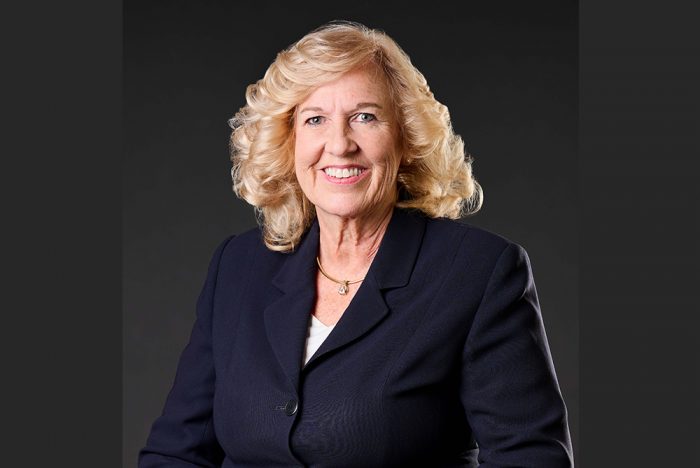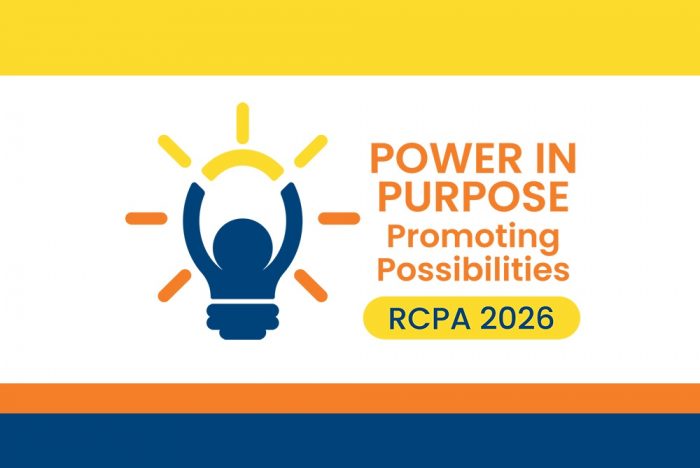Lisa McCann Elected Chair of RCPA Member Devereux Board of Trustees
Workplace Violence & Safety Bootcamp Offered by RCPA Member Conner Strong & Buckelew Feb. 19
Senate Passes FY26 Funding for Mental Health and SUD
From our partners at the National Council on Mental Wellbeing:
After a brief partial shutdown on Feb. 3, Congress passed an amended funding package that includes funding for five appropriations bills; the package now goes to the president’s desk for signature. The package also includes a two-week continuing resolution to temporarily fund the Department of Homeland Security (DHS) while a longer term deal is negotiated. If no funding deal is reached for DHS within the two-week timeframe, it is possible another partial shutdown will occur; however, Health and Human Services (HHS) programs would not be impacted.
Funding for HHS is included in the final fiscal year (FY) 2026 funding for the Labor, Health and Human Services, Education, and Related Agencies (LHHS) bill. See the Consolidated Appropriations Act, 2026 bill text and its accompanying report language.
Total funding for the Substance Abuse and Mental Health Services Administration (SAMHSA) was provided at $7.4 billion, relatively level to funding provided in FY24, when appropriations bills were last enacted (FY25 saw a year-long continuing resolution rather than an appropriations bill).
Overall, many mental health and substance use programs saw level or slightly increased funding. This is a tremendous win for the field, particularly in a challenging fiscal environment.
The Medicare telehealth waivers expired on January 30, 2026; and after a brief lapse in the telehealth waivers and a partial shutdown of the federal government, this passage restores continuity to Medicare telehealth coverage and a return to permanent, pre-pandemic policy. The extension will maintain key flexibilities, including expanded originating sites, geographic waivers, and eligibility for certain providers that would otherwise be unavailable under permanent Medicare telehealth rules. Additionally, this will apply retroactively and cover the lapse period for the delivery and billing of these services.
Additional language in the agreement includes a requirement that the Department of Health and Human Services (HHS) notify the committee at least three days prior to announcing or providing notice of a grant termination and directs SAMHSA to consult with Congress before issuing a funding opportunity announcement. This language provides additional congressional oversight in the agency grant making process. If you have any questions, please contact RCPA COO & Mental Health Division Director Jim Sharp.
Join RCPA in Supporting the Pennsylvania Reception at NatCon26
Governor Shapiro’s 2026/27 Budget Address Overview
On February 3, 2026, Governor Josh Shapiro delivered his fourth budget address to the Pennsylvania General Assembly. He began the address by commending the significant growth of the Commonwealth over the last three years, highlighting improvements in quality education, agriculture, energy, and becoming the only state in the Northeast with a growing economy.
Shapiro’s 2026/27 proposed budget calls for $53.3 billion in state General Funds expenditures, with Medicaid (32%) and Education (36%) being the largest spend categories. Other expenditures include:
- Human Services and other DHS programs (9%);
- Corrections and Parole (6%);
- Higher Education (4%);
- Debt Service (3%); and
- 10% remaining for all other categories.
The 2026/27 budget also includes supplemental appropriations of $390.3 million to increase the FY 2025/26 General Fund spend to $51.5 billion. The majority of this increase is attributed towards DHS programs and Education through the end of FY 2025/26, with a $374.5 million increase for human services related to increased projections of utilization, caseloads, and enrollments anticipated through June 2026.
Similar to last year’s address, Shapiro called for the legalization and taxation of adult use cannabis as well as taxing and regulating skill games terminals in order to support the proposed 2026/27 expenditure. The budget would also be funded by transferring $4.6 billion from the Budget Stabilization Reserve Fund (Rainy Day Fund) to the General Fund, which would leave the Rainy Day Fund balance at $3.3 billion.
2026/27 Proposed Budget Highlights:
Behavioral Health
- Behavioral Health Medicaid Capitation: The 2026/27 proposed budget includes a 15% increase to $4.4 billion in Medicaid capitation funding to the behavioral and physical HealthChoices programs. This is the amount of money from which behavioral health Medicaid managed care organizations reimburse providers for mental health and SUD treatment services. At this point, how the total capitation funding breaks out between behavioral and physical health is not known. The current fiscal year budget includes $1.95 billion in behavioral health Medicaid capitation.
- Substance Use Disorder Funding: The Department of Drug and Alcohol Programs saw a $300,000 increase in its general operations fund but was otherwise flat-funded. Most of DDAP’s state dollars are passed onto Single County Authorities to fund treatment at the county level.
- Adult Use Recreational Marijuana: The proposed budget included $730 million in anticipated revenue from legalized adult use recreational marijuana, which, if legalized by the legislature, would take effect January 1, 2027.
- Mental Health Services: The proposed budget includes a $65 million (+6.9%) increase, including $10 million to support the 988 network, $7.3 million to expand diversion and discharge programs for individuals with mental illness currently in the criminal justice system, and $5 million to maintain walk-in mental health crisis stabilization centers.
- School Mental Health: Shapiro proposed $100 million for school mental health and safety, totaling in $400 million over his term.
Intellectual and Developmental Disabilities
- Intellectual Disabilities Community Waiver: The Governor’s proposed FY 2026/27 budget includes a $76.8 million increase for the Intellectual Disabilities Community Waiver line item, largely intended to maintain existing services and enrollment rather than expand capacity. No funding is currently explicitly proposed for waiting list initiatives.
- ARPA HCBS Funding: One-Time ARPA HCBS funding is ending in 2026. A limited backfill is proposed to continue select initiatives, raising questions about the long-term sustainability of workforce and service enhancements supported with one-time federal funds.
- Minimum Wage Increase: The proposal to increase the minimum wage to $15/hour, effective January 1, 2027, would significantly impact IDD providers without a clearly identified, corresponding waiver rate adjustment in the budget.
- Emphasis on Stability: Overall, the budget proposal shows a focus on maintaining current system stability. Ongoing workforce cost pressures and rate adequacy remain key concerns for IDD service providers.
Community HealthChoices
- The initial release of the Governor’s 2026/27 budget for the Department of Human Services (DHS) includes an increase of 7.47% for Medical Assistance/Community HealthChoices. RCPA will be working with DHS to determine what this increase to the CHC-MCOs will encompass and how this could impact members under the Community HealthChoices program.
While this brief overview provides a snapshot of the Governor’s proposed budget, RCPA Policy Staff will be working with our lobbying partners, healthcare experts, and systems’ stakeholders to provide a thorough analysis of the budget to members. We have confirmed that DHS will be hosting a virtual proposed budget briefing on its portion of the State Budget funding this Friday, February 6, 2026. An invitation was distributed to RCPA members earlier this morning. The virtual briefing will provide some additional details, but the DHS “Blue Book” provides the most detail on certain appropriation lines and should be available in the coming weeks in advance of its hearings with the Senate and House Appropriations Committees.
If you have questions, please contact your respective RCPA Policy Director.
DHS to Host 2026/27 Budget Briefing on February 6
Secretary Val Arkoosh and leadership from the Department of Human Services (DHS) will host a webinar to discuss the proposed 2026/27 budget for the department. The briefing will take place at 10:00 am on Friday, February 6. If you are unable to attend, the briefing will be recorded and available for viewing afterwards on DHS’ YouTube channel.
Visit here to register for the briefing. All who plan to attend must register individually. A link for the webinar will be sent Thursday evening. DHS encourages you to submit questions ahead of the briefing so they can prepare as much information as possible. The Department will follow up on any questions that they are unable to answer during the webinar.
If the registration link above does not work, please try copying this link directly into your browser: https://forms.office.com/Pages/ResponsePage.aspx?id=QSiOQSgB1U2bbEf8Wpob3tuk6VNEbjZIvvnDA4XOB-dUN1FXNFUzSjBSUEtEUk9GM1A3WEhMSlBSUC4u
National Council’s Group Purchasing Program
Sponsor, Exhibit, and Advertise at the 2026 RCPA Conference!
Join RCPA as we host the 2026 Annual Conference Power in Purpose: Promoting Possibilities from September 29 – October 2 at the Hershey Lodge. The event is a highlight for the Pennsylvania behavioral health, brain injury, children’s, early intervention, intellectual and developmental disabilities, medical rehabilitation, and physical disabilities and aging provider communities. RCPA staff and the Conference Committee are excited to release this year’s Sponsors, Exhibitors, and Advertiser Brochure, which features many opportunities to get in on the action and network with providers. Booth self-selection will also be available for exhibitors and exhibiting sponsors. In order to be considered for self-selection, a completed contract with payment must be submitted.
 Network and Compete in Connections Hall
Network and Compete in Connections Hall
Connections Hall activities take place during the two busiest days of the conference, and many networking opportunities are available throughout the event. You’ll also be able to compete and have a chance to win “Best of Show!”
Exciting Sponsorship Opportunities
RCPA is privileged to have the backing of the finest organizations in the field for our conference. Through the use of sponsorship circles, RCPA is able to honor all supporting organizations.
Sign Up Now!
Sponsors, exhibitors, and advertisers who wish to be listed on the website, on the mobile app, and in the conference program must submit all materials by Tuesday, September 8.
 The association looks forward to welcoming you at the conference! Space and opportunities are reserved on a first-come, first-served basis, and no reservation is considered complete without payment. If questions remain, please contact Carol Ferenz, Conference Coordinator.
The association looks forward to welcoming you at the conference! Space and opportunities are reserved on a first-come, first-served basis, and no reservation is considered complete without payment. If questions remain, please contact Carol Ferenz, Conference Coordinator.RCPA Seeks Proposals for the 2026 Conference “Power in Purpose: Promoting Possibilities”
RCPA continues to seek proposals for the 2026 Annual Conference Power in Purpose: Promoting Possibilities, which will be held September 29 – October 2 at the Hershey Lodge for a statewide audience. RCPA’s Conference Committee is looking for workshop proposals in every area for possible inclusion, particularly those that assist providers in developing and maintaining high-quality, stable, and effective treatments, services, and agencies in an industry where change is constant. The committee looks for presentations that:
- Discuss strategies for C-Suite
 leadership to advance their organization with adapting to challenges and opportunities;
leadership to advance their organization with adapting to challenges and opportunities; - Provide guidance on building a culture of a committed workforce, including recruitment and employee development as well as effective remote workforce strategies;
- Highlight new policy, research, and treatment initiatives, such as the use of artificial intelligence and technology in service provision;
- Provide specific skills and information related to individual and organizational leadership development and enhancement;
- Discuss advanced ethics practices and suicide prevention; and/or
- Address system changes that affect business practices, including integrated care strategies, value-based purchasing, performance-based contracting, acquisitions and mergers, and alternative payment models.
The committee welcomes any proposal that addresses these and other topics essential to brain injury, medical rehabilitation, mental health, substance use disorder treatment, children’s health, aging, physical disabilities, autism, and/or intellectual/developmental disabilities. Members are encouraged to consider submitting, and we highly encourage you to forward this opportunity to those who are exceptionally good speakers and have state-of-the-art information to share.
The Call for Proposals (featuring a complete listing of focus tracks) and accompanying Guidelines for Developing Educational Objectives detail requirements for submissions. The deadline for submissions is COB Monday, March 23, 2026. Proposals must be submitted electronically with the form provided; confirmation of receipt will be sent. Proposals submitted after the deadline may not be considered.
 If the proposal is accepted, individuals must be prepared to present on any day of the conference. Workshops are 90 minutes in length. If the topic requires an in-depth presentation, a double session can be scheduled for a total of 180 minutes. At the time of acceptance, presenters will be asked to confirm the ability to submit workshop slides and handouts electronically two weeks prior to the conference. Individuals unable to meet this expectation may not have their materials available to participants during the conference.
If the proposal is accepted, individuals must be prepared to present on any day of the conference. Workshops are 90 minutes in length. If the topic requires an in-depth presentation, a double session can be scheduled for a total of 180 minutes. At the time of acceptance, presenters will be asked to confirm the ability to submit workshop slides and handouts electronically two weeks prior to the conference. Individuals unable to meet this expectation may not have their materials available to participants during the conference.
Individuals are welcome to submit more than one proposal; however, we ask that you submit no more than three total. Notification of inclusion for the conference will be made via email by Monday, May 11, 2026. Questions may be directed to Carol Ferenz, Conference Coordinator.

















